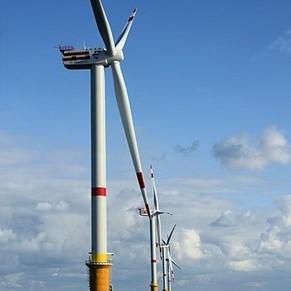Undergraduate research

Climate Change Politics: China’s Environmental Policy as Grand Strategy
Yang Zuo (Fitzwilliam, 2019)
Haze, sandstorms, and polluted, smelly groundwater: this is what came to my mind when I thought of China’s impressive economic growth in the 2000s. I can still recall the smog mixed with coal ash released from steel factories in my hometown. The pollution was visible. I could taste it in the air, much like low-quality diesel. My eyes burned.
Probably because of these childhood experiences, I have always thought of economic development as a nemesis of environmental protection. However, I was astonished to see thousands and thousands of wind turbines installed in Inner Mongolia when I was travelling in China not long ago. Like white waves inundating boundless grasslands, the massive turbines extended beyond the horizon. At that moment I realised China’s environmental policy was undergoing a dramatic change, perhaps no less significant than the story of its economic miracle. It was then that I started asking how this dramatic change in China’s environmental policy related to its grand strategy.
I was recently given an opportunity to reflect on China’s shifting environmental policy in the inaugural issue of the Journal of Asia and Europe Relations, published by the Student Think Tank for Europe-Asia Relations (STEAR). Founded by Luke Cavanaugh and Dao Nguyen in 2021, this nascent policy institute aims to provide a bridge between Asia and Europe, and to strengthen multilateral cooperation and international prosperity. STEAR now has 33 countries represented on its team. Its global perspective and diverse outlook attracted me and its journal offered a forum to present my thoughts on China’s latest environmental policy.
My article was titled Climate Change Politics: Implications of China’s Environmental Policy for Its Grand Strategy. Analysing the history and recent developments of China’s environmental policy, I argued that there is much continuity in the way in which China’s environmental policy has been used over the past five decades to increase China’s international influence and economic power, which have been central objectives of its grand strategy.
I found that a dramatic change in environmental policy at home was accompanied by a simultaneous shift in environmental policy abroad. In April 2016, both China and the United States did the unexpected and signed the Paris Agreement. At that time, these two nations accounted for 55 percent of the world’s yearly greenhouse gas emissions. In the same year, the Chinese government established a G20 Green Finance Study Group under its presidency of the G20. This was indeed an unprecedented move. Previously, China had sided with developing countries to collectively defend the right to development and insisted that it was primarily the historical responsibility of developed countries to reduce global carbon emissions. Several years later, when US President Donald Trump withdrew from the Paris Agreement, China increased its efforts to fill in the vacuum left by the United States in the global leadership on climate change. In short, as China turned to prioritise environmental policy at home, it also became more proactive in the international arena. These two developments were mutually complementary and could synergistically promote its grand strategy.
To theorise the dynamism between China’s new environmental policy and grand strategy, I identified the Belt and Road Initiative, green energy industry and green finance as new avenues for China to shape the international agenda on climate change and international environmental regulations. Nevertheless, these avenues were also inseparable from recent intensifications of the great power rivalry between China and the West, particularly the United States. Such complicated politicisation of international environmental policy was reflected in varied reactions to China’s Belt and Road Initiative, which was frequently criticised for its negative ecological impacts on local communities, such as air pollution from coal-fired power plants financed and constructed by Chinese companies. Surprisingly, this time China did not firmly defend these overseas projects. Instead, President Xi Jinping pledged not to build any coal-fired power projects abroad in a speech at the United Nations in September 2021.
My article used this case study to illustrate the unique nature of climate change politics. Unlike international political or military competition, which tend to be a zero-sum game and increase insecurity for all parties, the paradigm of international environmental competition could lead to increased green investments and more environmentally-friendly industries that could improve the global ecosystem. There is evidence that this is happening. This year, both the EU and the USA announced ambitious green investment projects to rival China.
My analysis of China’s new environmental policy ended on a positive note. While capturing the dramatic change in China’s environmental policy, I hope my research will attract more attention to environmental protection and sustainable development in international relations.
